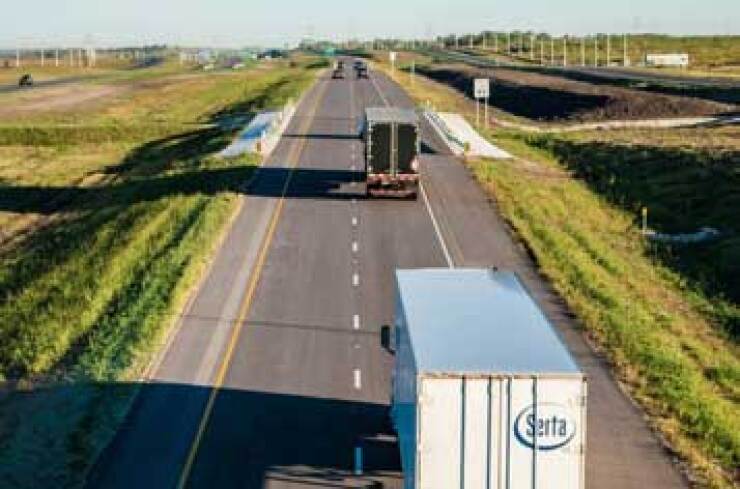
AUSTIN - Texas is building more toll roads and seeking private investors in revenue-producing projects because traditional funding sources can't meet the demand for new highways to serve an ever-growing population, the state's transportation experts told an international audience Monday.
The state's population grew 140% in the last 25 years while road traffic went up more than 230%, said Jeff Austin, a member of the Texas Transportation Commission and a session panelist at the 82nd annual meeting of the International Bridge, Tunnel, and Turnpike Association.
"We have a growing population that is looking to us to provide transportation solutions, and we have to deliver," Austin said. "The problem is that there is not enough money in the traditional system to fund this work."
The growing use of public-private partnerships to solve infrastructure funding problems is attracting attention from other states and the notice of private investors, said Joseph Krier, chairman of SH 130 Concession Co. LLC, which operates the southern section of the State Highway 130 toll road in central Texas.
"Our experience in Texas in public-private partnerships is being looked at globally, with billions of dollars at stake," Krier said.
The company, a partnership of Spanish toll-road developer Cintra and San Antonio-based Zachry Construction Co., operates a 41-mile section of the 89-mile toll road. The $1.35 billion project opened to traffic in 2012.
The Texas Department of Transportation, which awarded the concession to Cintra-Zachry in 2007, operates the other 50 miles of the toll road as the Central Texas Turnpike Authority.
Funding for the toll road from north of Austin to south of San Antonio included a $438 million federal Transportation Infrastructure Finance and Innovation Act loan.
"Few states are as far along the economic curve as we are, and international investors are realizing they can come to Texas and get a fair return on their investments in transportation infrastructure," Krier said. "We want those billions of dollars in Texas."
The revenue from SH 130 tolls is below expectations at this point, he said, but that will soon be resolved.
"We have this concession for 50 years, and within a few years it will become a valuable transportation asset," Krier said. "Interstate 35 [the heavily traveled road that stretches from Laredo to the Oklahoma line] will be a parking lot in five to 10 years."
The unreliability of federal highway funding was illustrated by the short-term, $11 billion extension of the Highway Trust Fund by Congress in late July, said Pete Winstead, founder of Austin's Winstead PC law firm and first chairman of the Texas Turnpike Authority.
"A 10-month pass does not get me excited," Winstead said. "We've got to be able to plan further ahead. The state gasoline tax has not been increased since 1991, and there are very few alternatives to tolling."
More than 100 people a day move to Austin and Travis County and bring some 74 vehicles with them, Winstead said.
Austin voters will be asked to approve a $1 billion transportation plan in November that would fund rail as well as road projects in an effort to reduce traffic tie-ups, Winstead said.
"The election is not road versus rail, because we need them both," he said. "If we don't fix the congestion in Austin, our economic growth will come to a screeching halt."
A constitutional amendment to be decided in the November election could put $1.7 billion of oil and gas production taxes into the state highway fund each year, said state Sen. Robert Nichols, R-Jacksonville, chairman of the Texas Legislature's Senate Transportation Committee.
"That will help a lot but it won't cover our funding gap of $4 billion to $5 billion a year," Nichols said.
Nichols said he would lead an effort to allocate a portion of vehicle sales tax revenue to highway funding when the legislature convenes in January.
"I think we'll have some progress on that in this session," he said. "I'm enthusiastic."
A recent poll of Texas voters sponsored by infrastructure developer HTNB found that 55% would support tolls as part of a transportation project's funding if other sources are insufficient.





